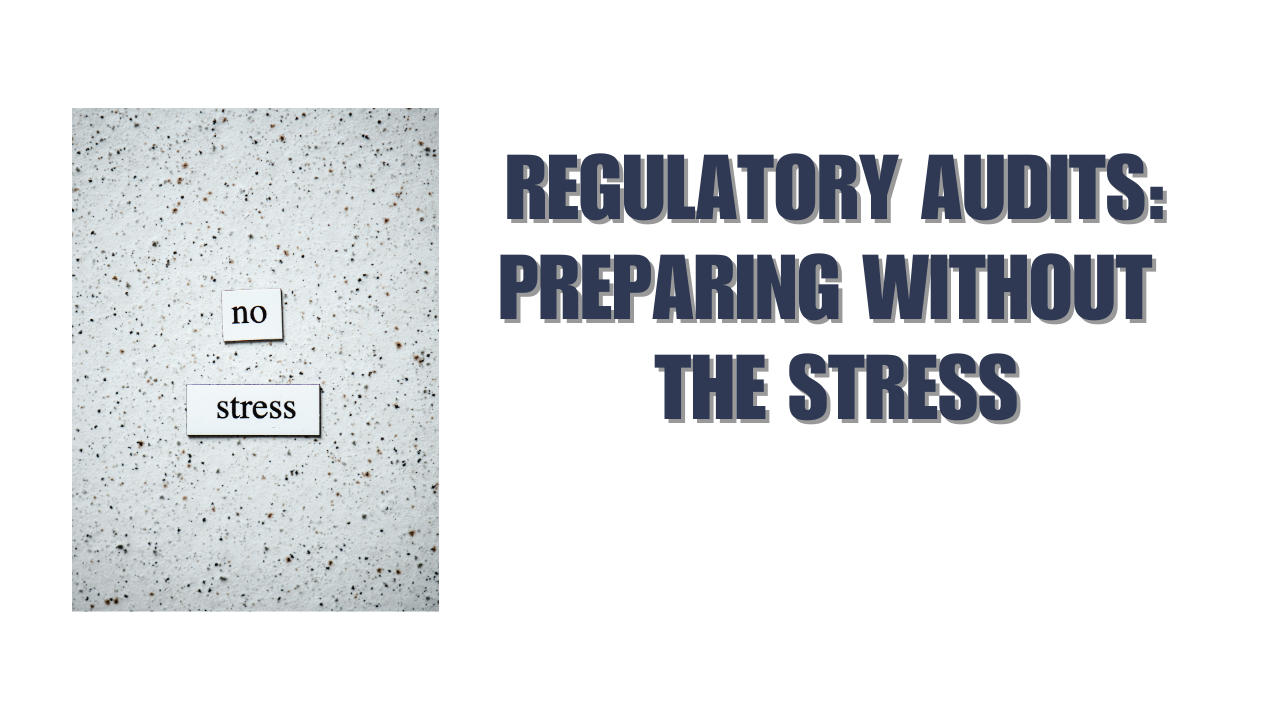For most businesses, the phrase “regulatory audit” can trigger immediate anxiety. The thought of external scrutiny, compliance checks, and piles of documentation often feels overwhelming. Yet, regulatory audits are a standard part of doing business-and when approached strategically, they don’t need to cause stress. In fact, they can become opportunities to strengthen compliance, improve internal processes, and build credibility with stakeholders.
At Aurora Financials, we’ve seen how the right preparation transforms regulatory audits from stressful obligations into structured, manageable processes. With clear planning, effective controls, and the right expertise, audits can be completed smoothly and confidently.
What Is a Regulatory Audit?
A regulatory audit is an independent assessment conducted to ensure that a business complies with specific laws, industry standards, or government regulations. Unlike internal audits, which are self-directed, regulatory audits are mandated by external authorities.
They may cover areas such as:
- Financial reporting (tax compliance, accounting standards)
- Industry-specific regulations (healthcare, banking, manufacturing)
- Data protection and privacy laws
- Environmental and safety compliance
The scope and intensity of a regulatory audit depend on the industry and jurisdiction, but the goal is the same: ensuring that businesses are operating legally and transparently.
Why Do Regulatory Audits Cause Stress?
Businesses often struggle with regulatory audits for a few key reasons:
- Volume of documentation – Gathering and organizing records can be time-consuming.
- Uncertainty about compliance – Companies may worry about gaps in controls or outdated policies.
- Fear of penalties – Non-compliance can lead to fines, legal consequences, or reputational damage.
- Disruption to daily operations – Audits require significant time and attention from finance and management teams.
These factors explain why regulatory audits are viewed with apprehension and they also highlight the importance of being prepared.
Benefits of Effective Audit Preparation
While stressful for the unprepared, regulatory audits offer several business benefits when managed properly:
- Reduced compliance risk – Identifying and addressing gaps before the audit prevents penalties.
- Operational improvements – Audits often highlight inefficiencies in controls or reporting.
- Stakeholder confidence – Successful audits build trust with regulators, investors, and partners.
- Strategic insights – Clearer visibility into compliance helps leadership make informed decisions.
When businesses prepare thoroughly, regulatory audits shift from being disruptive events to value-adding opportunities.
Best Practices for Stress-Free Regulatory Audit Preparation
1. Start Early With a Compliance Calendar
Waiting until the last minute is the fastest route to audit stress. Instead, businesses should create a compliance calendar that maps out filing deadlines, reporting requirements, and regulatory updates. This proactive approach ensures nothing is overlooked.
2. Conduct Internal Pre-Audits
Internal audits serve as a rehearsal for regulatory inspections. By testing controls, reviewing documentation, and identifying gaps in advance, businesses can address weaknesses before external auditors arrive.
3. Maintain Clear and Accessible Documentation
Auditors often spend more time waiting for documents than analyzing them. Organizing financial statements, contracts, tax filings, and policies into a central system saves time and demonstrates transparency.
4. Strengthen Internal Controls
Robust internal controls reduce compliance risks and reassure regulators. Businesses should review authorization processes, segregation of duties, and reconciliation practices regularly to ensure effectiveness.
5. Train Staff on Compliance Requirements
Audit success isn’t just about paperwork-it also depends on people. Staff members must understand their roles in compliance, from maintaining accurate records to responding confidently during auditor inquiries.
6. Leverage Technology and Automation
Modern audit software can automate data collection, flag compliance issues, and generate real-time reports. This reduces manual errors and accelerates preparation.
7. Partner With External Experts
Working with experienced audit professionals brings specialized knowledge and independent assurance. External advisors provide guidance on complex regulations, reducing the risk of oversight.
Example: Smooth Regulatory Audit Success
A mid-sized healthcare company faced its first regulatory audit under new data protection laws. Initially overwhelmed, management worked with auditors to conduct a pre-audit review, streamline documentation, and implement missing controls. The result: not only did they pass the audit with zero penalties, but they also discovered process improvements that reduced compliance costs.
This example shows how preparation transforms a stressful obligation into a confidence-building achievement.
Common Mistakes to Avoid
Even businesses with strong compliance frameworks can make errors that complicate regulatory audits. Some of the most common mistakes include:
- Relying on outdated policies that no longer meet current regulations.
- Ignoring small compliance gaps until they snowball into major issues.
- Focusing only on documentation without testing whether controls are working.
- Failing to communicate with auditors clearly and promptly.
Avoiding these pitfalls ensures audits remain efficient and productive.
Future of Regulatory Audits: What to Expect
Regulatory audits are evolving, influenced by global trends and technological advances. Businesses should prepare for:
- Greater emphasis on ESG reporting (environmental, social, governance).
- Stricter data privacy audits as digital risks increase.
- Increased use of analytics by regulators to identify compliance gaps faster.
- Cross-border regulations impacting global businesses.
Preparing early and embedding compliance into everyday operations will help companies stay ahead of these changes.
Conclusion
Regulatory audits don’t need to be stressful. With proactive preparation, businesses can manage audits smoothly, reduce compliance risks, and even uncover opportunities for operational improvement.
At Aurora Financials, we help organizations prepare for regulatory audits with confidence. From pre-audit reviews to documentation support and compliance strategy, our expertise ensures that audits are completed efficiently, without unnecessary disruption or stress.
FAQs
1. How often do regulatory audits occur?
The frequency of regulatory audits depends on the industry and jurisdiction. Some sectors, such as finance and healthcare, may face annual inspections, while others may only be audited periodically or when triggered by specific events.
2. What happens if a business fails a regulatory audit?
Consequences can include financial penalties, corrective action requirements, or even legal sanctions. Beyond fines, failed audits can damage reputation and stakeholder trust.
3. Can small businesses face regulatory audits?
Yes. While large corporations face greater scrutiny, small and medium-sized businesses are also subject to regulatory audits, particularly in areas like tax, labor laws, and data protection.






